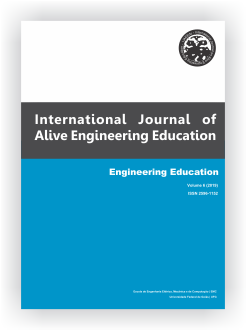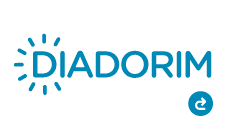Clustered Social Representation of Active Methodologies in Engineering Courses a case study at Goiás State, Brazil
DOI:
https://doi.org/10.5216/ijaeedu.v6.60180Abstract
This work aims to identify changes and trends that favor the students' learning style and autonomy, through a qualitative evaluation of the social representation of students in the development of individual and group activities. Questionnaire application and interviews were carried out at both the Pontifical Catholic University of Goiás (PUC Goiás) and the Federal University of Goiás (UFG). The questionnaire is based on a 7-point Likert scale, which evaluates 13 items in four dimensions. After answering, each item is analyzed by the k-means clustering method, which groups the data unsupervised according to the levels of similarity of each item. With the result, we can point out what are the aspects that determine the skills and psychosocial profile of students, from this, it will be possible to make changes in the methodology applied to benefit the learning process of students, favoring multidisciplinary skills, the courage to face the students. challenges creatively, the ease of adapting to change, working as a team, valuing and understanding one's point of view - with commitment and ethics.
Downloads
Published
Issue
Section
License
Copyright
The author is responsible for the following statements by submitting an article electronically in the International Journal of Alive Engineering Education (IJAEEdu):
a) States that the document in question was reviewed by an expert in English language and it is an original work and it holds the prerogative to grant the rights contained in this license. It also states that the document does not infringe, as far as it is possible to know the rights of any other person or entity.
b) If the document in question contains material which does not hold the copyright, the author states have obtained the copyright holder’s permission to grant the Universidade Federal de Goiás (UFG) the rights required by this license, and that such material whose rights are third is clearly identified and acknowledged within the text or content of the document.
c) States that the study was conducted in accordance with the ethical standards of all applicable institutional, local, national and international guidelines.
d) It also states that any person appointed as author or co-author of the document is aware of it and agrees to be so appointed.
Authorization Form
As responsible for the submission of the document, I authorize the School of Electrical, Mechanical and Computer Engineering of the Federal University of Goiás to provide the paper free of charge, through the Electronic System for Publishing Magazines UFG (SEER / UFG) or in printed form, without compensation of copyright, in accordance with Law No. 9610/98. Is allowed, reading, printing and / or download, as a promotion of the Brazilian scientific production. Any use of the work not authorized under this license or the copyright law is prohibited.



